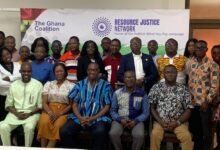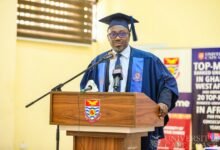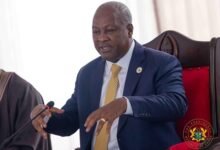2019/2020 bushfire prevention campaign launched
About 20,000 fire volunteers are to be trained with practical skills to augment the efforts of the Ghana National Fire Service, the Deputy Chief Fire Officer (DCFO), Semekor Kwaku Fiadzo has said.
Speaking at a stakeholders meeting for the launch of the 2019/2020 bushfire prevention campaign, the DCFO said the move was aimed at reducing bush fires to the barest minimum.
This year’s campaign, which is the eighth since its inception, would be under the theme, ‘My Environment, My Life, Stop Bushfires Now’, and expected to be launched on October 11, this year.
Intended to sensitise the public, particularly, farmers, herdsmen, palm-wine tappers and game hunters to the devastating effect of bush fires on the country and the need for all well-meaning Ghanaians to get involved in preventing them, the gathering witnessed representatives from Forestry Commission (FC), Information Service Department (ISD), Ghana National Fire Service (GNFS) and others.
DCFO Fiadzo said the volunteers were to assist farmers to adopt good farming practices that would cause any unwanted fires that could wipe away investments.
“Human activities like bush meat has led to the continuous devastation of the forest, hence the depletion of the forest cover which leads to rainfall,” he added.
The DCFO, who is the chair for this year’s bushfire prevention planning committee, observed that the inability of the service to combat fire effectively was a result of dwindling national support over the years.
He noted that uncalled-for destruction of the vegetation by bushfires had negatively impacted the sustainability of the environment, emphasising the need for stringent measures to address the challenge, such as the training of more volunteers on bush fires prevention.
He said fire prevention is a shared responsibility, therefore the need for the public to obey fire regulations to help the region record low fire incidents in the coming years.
Speaking on the ban on hunting, he said it was apt and timely, since it would allow the animals to breed and produce more.
BY BENEDICTA GYIMAAH FOLLEY







